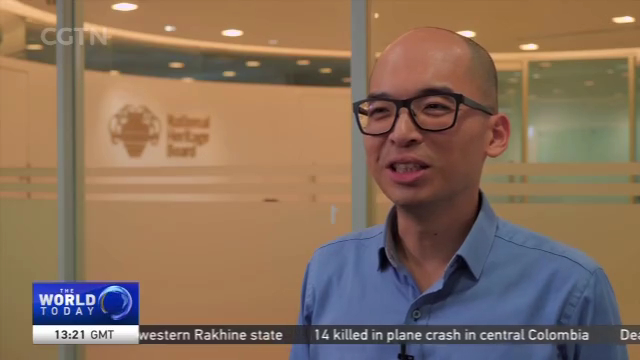
22:14, 10-Mar-2019
Singapore's Living Heritage: Local hawker culture en route to UNSECO list of intangible heritage
Updated
22:10, 13-Mar-2019
03:22

Eating out is part of life for many in Singapore - not necessarily at restaurants but at outdoor food markets, called hawker centres. The government intends to build 20 more and is pushing to get them recognized by UNESCO. Our Miro Lu has more.
There are about 114 Hawker centres in Singapore. They've been around since the country received its first influx of foreigners more than two centuries ago. These places provide affordable food for residents, and have become what the authorities now consider the country's "living heritage". In March, a committee of government offices, NGOs, together with private organisations in Singapore will submit a bid for the country's hawker culture to be part of UNESCO's list of intangible heritage.
YEO KIRK SIANG DIRECTOR OF HERITAGE RESEARCH AND ASSESSMENT SINGAPORE NATIONAL HERITAGE BOARD "Hawker culture is a very much a part of Singapore's every day life. We hope that the nomination will help to encourage our Singaporeans to really cherish and value this important aspect of Singapore's culture and our way of life. A successful nomination will also encourage Singaporeans to truly value the hard work and give recognition to our hawkers who feed this food-loving nation of ours."
Locals in the republic have voiced their support for crystallising this cultural heritage in the UNESCO's list, and expressed pride in the hawker culture.
"It would mean lot to Singaporeans on the ground and the hawkers simply because it's something that we really want to share and we want to preserve."
"It will bring more tourism to Singapore, that's for sure, so this will provide a boost to the hawkers' revenue."
But not everyone in the civil society is fully supportive of the bid. In 2015, the government created a task force to improve hawker centers in the city state. They allowed private companies to manage some centers, which led to longer working hours and higher rentals. Some have said that the government's initiative only helps with the UNESCO bid rather than benefit hawkers on the ground.
KF Seetoh is one of the leading hawker culture advocates in the country. He founded Makansutra, a company that has celebrated Asian food culture for the past 20 years. He sometimes bridges the divide between the authorities and the hawkers.
KF SEETOH, FOUNDER MAKANSUTRA "I think some hawkers are happy, but they don't come up to you and say wah it's a UNESCO thing. On my end, I try to make some narrative and noise about how we should keep the prices of operations of their hawkers affordable so they can give affordable food for the masses."
MIRO LU SINGAPORE "Singapore is home to a spread of Michelin-star restaurants and eateries. But Hawker Centres have long been an enclave of cheap and good meals for the masses, dating all the way to the beginning. It is a heritage that has evolved together with its people. Immortalising it in UNESCO's list of intangible heritage would be a treat for the food-loving nation. Miro Lu, CGTN, Singapore."

SITEMAP
Copyright © 2018 CGTN. Beijing ICP prepared NO.16065310-3
Copyright © 2018 CGTN. Beijing ICP prepared NO.16065310-3